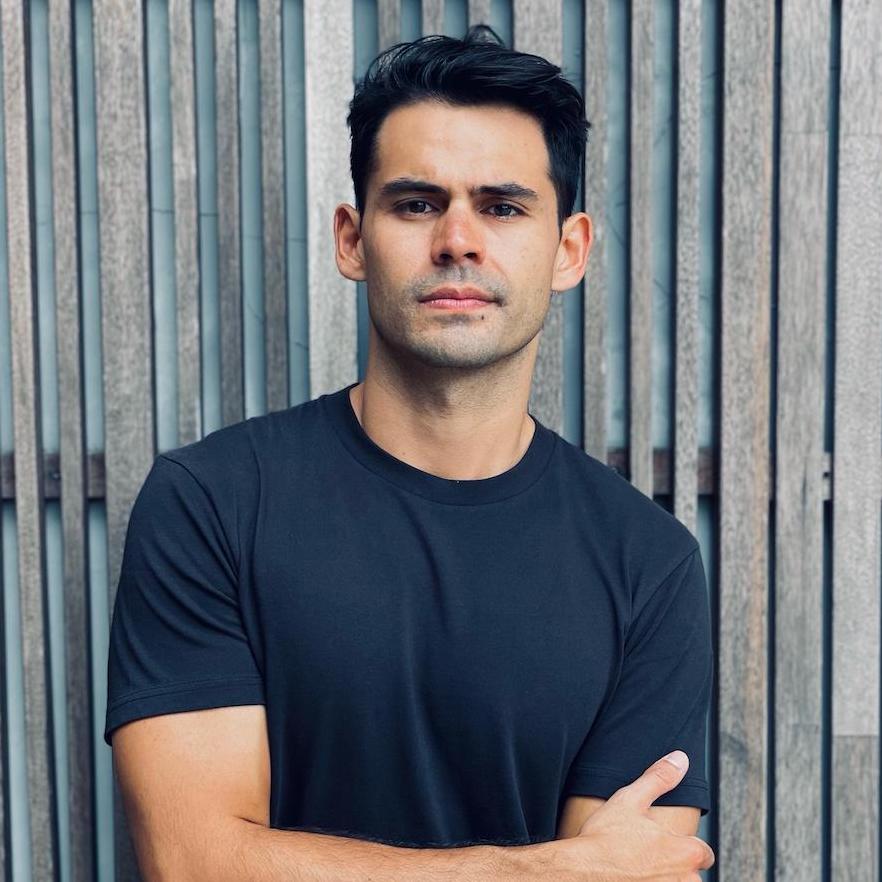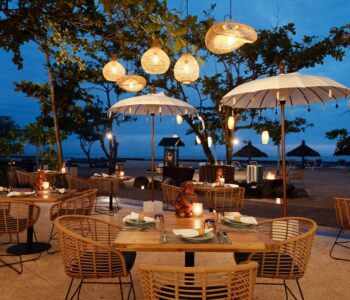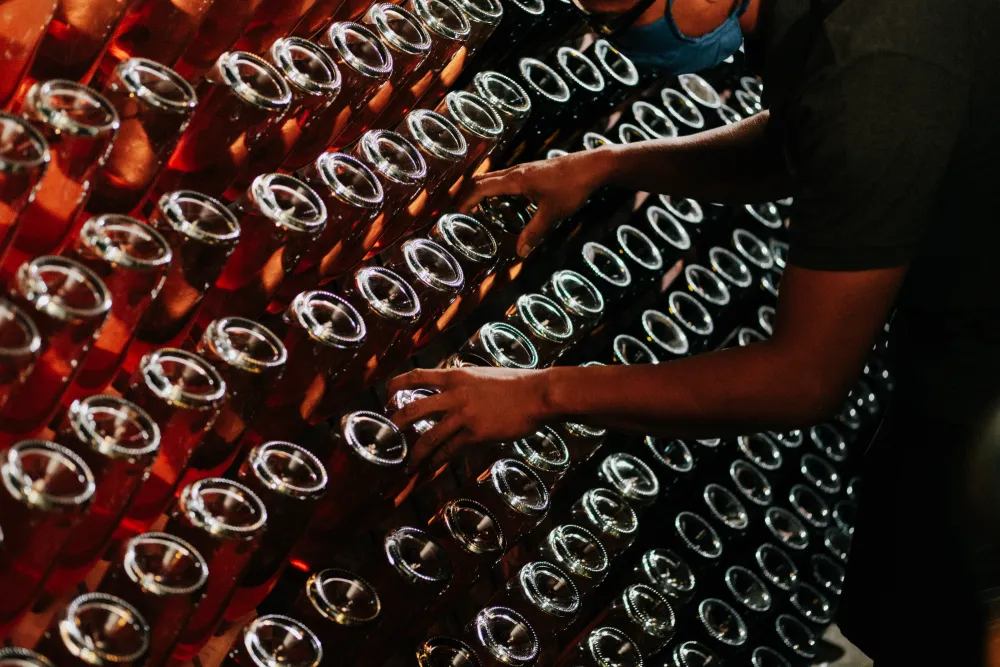
Founded in 1994 by Ida Bagus Rai Budarsa, Hatten Wines is Bali’s first wine company and produces wines from locally-grown grapes. Gus Rai wanted to offer visitors a taste of Bali, a wine that reflected the island’s tropical terroir.
Having just celebrated their 30th anniversary in August 2024, it’s an apt moment to reflect on how far this winery has come and how much they have pushed the boundaries when it comes to wine and vineyard development. After three decades, Hatten Wines now has 30 award-winning wine varietals, including the Two Islands and Dragonfly brands. They are also the first wine company to be listed on the Indonesian Stock Exchange.
All of this started with a single grape: Alphonse Lavallée. This red table grape was rumoured to have been brought to Bali during the Dutch colonisation of Indonesia. With it, Gus Rai fashioned Hatten’s first wine, a humble rosé. What that first bottle may have tasted like, only a handful will remember, but it was a watershed moment that showed that this improbable industry was indeed a possibility and set off a future of innovation in its wake.
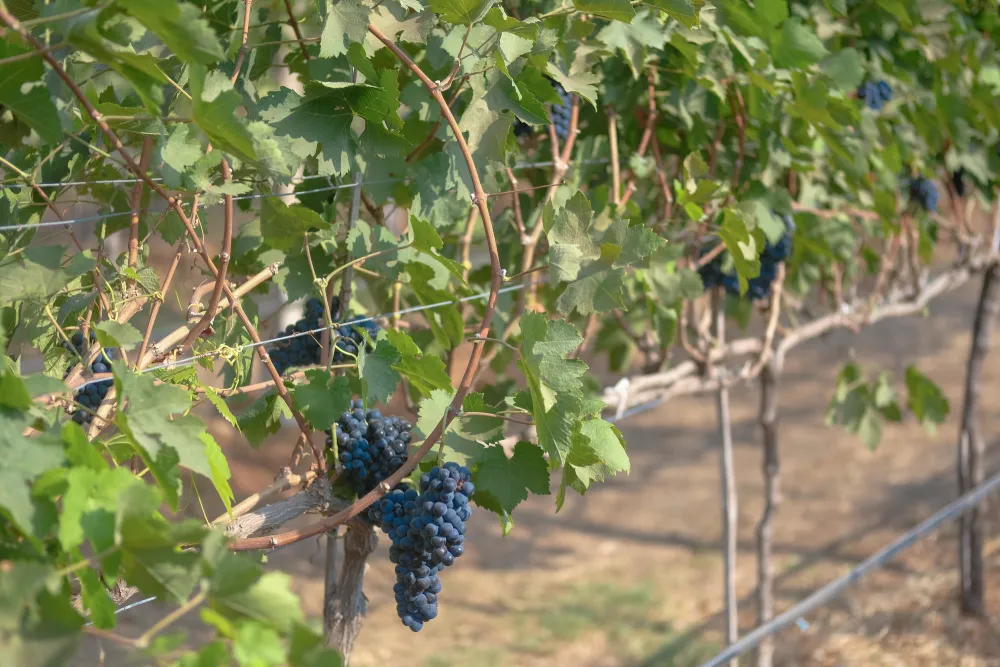
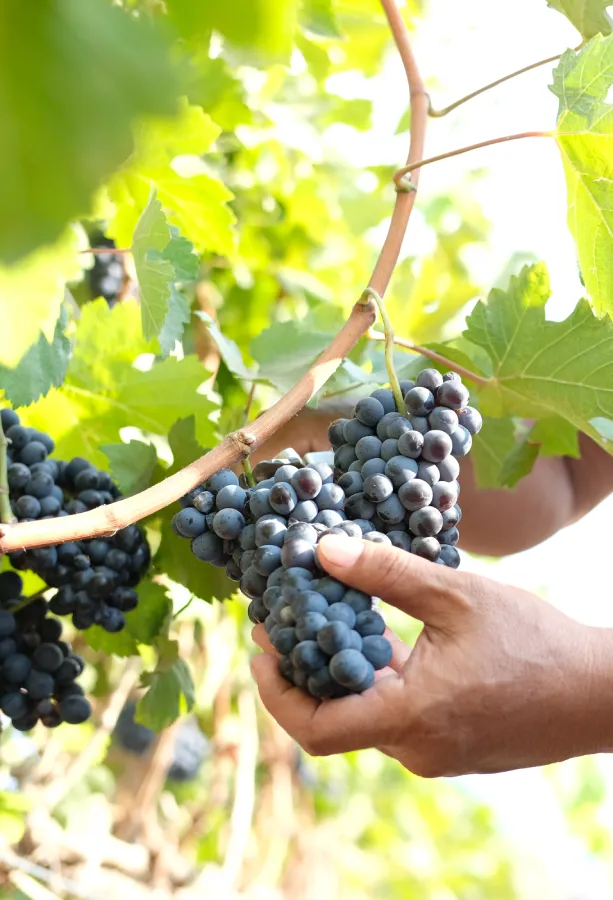

“The fact that grapes exist here at all is already amazing,” says James Kalleske, Head of Winemaking at Hatten Wines, who joined the company in 2012. Initially focused on advancing the now very sophisticated winemaking processes, he later turned a lot of his attention to the vineyards. “Grapes define their own flavours and so winemaking can only get us so far. What we can grow is the key to making something really premium,” shares James, who believes that for Bali’s wine industry to compete at a global scale, using internationally-recognised grapes is essential.
So in 2014, Gus Rai, James and vineyard manager Thomas Hadiwibowo began a special research and development program with the goal of introducing ‘noble’ grape varieties to the 60-hectares of vineyards they manage in North Bali. “The number one factor in new varietal introduction is resilience: if it’s going to survive the Bali climate,” explains James. Bali is subject to heat, pests and worst of all, fungus, and finding the right strain of the right variety is like finding a needle in a haystack. Even then, the process of making it thrive is a trial of its own.
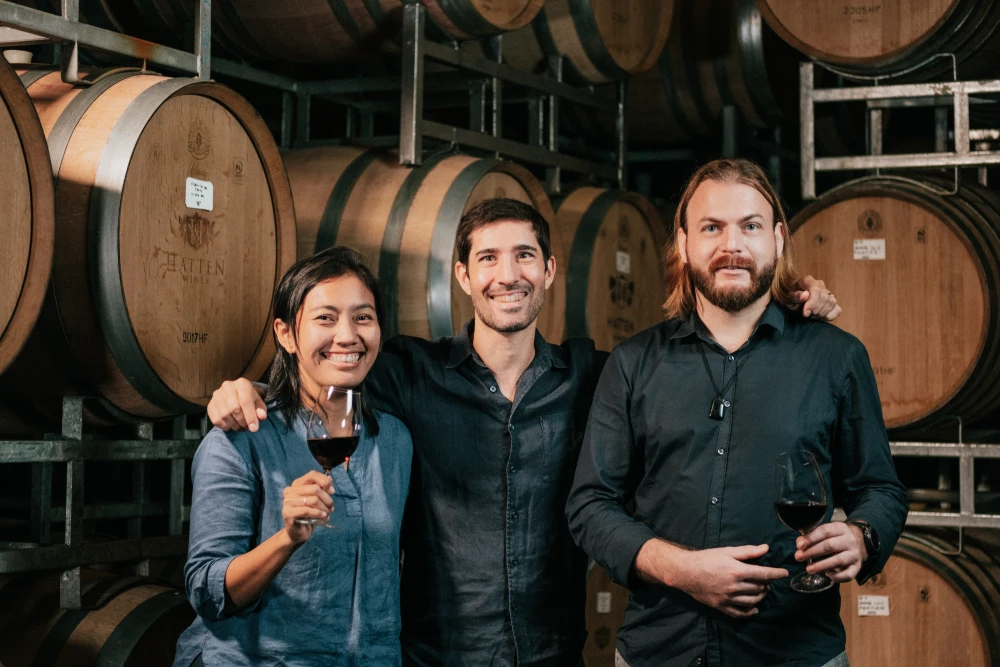

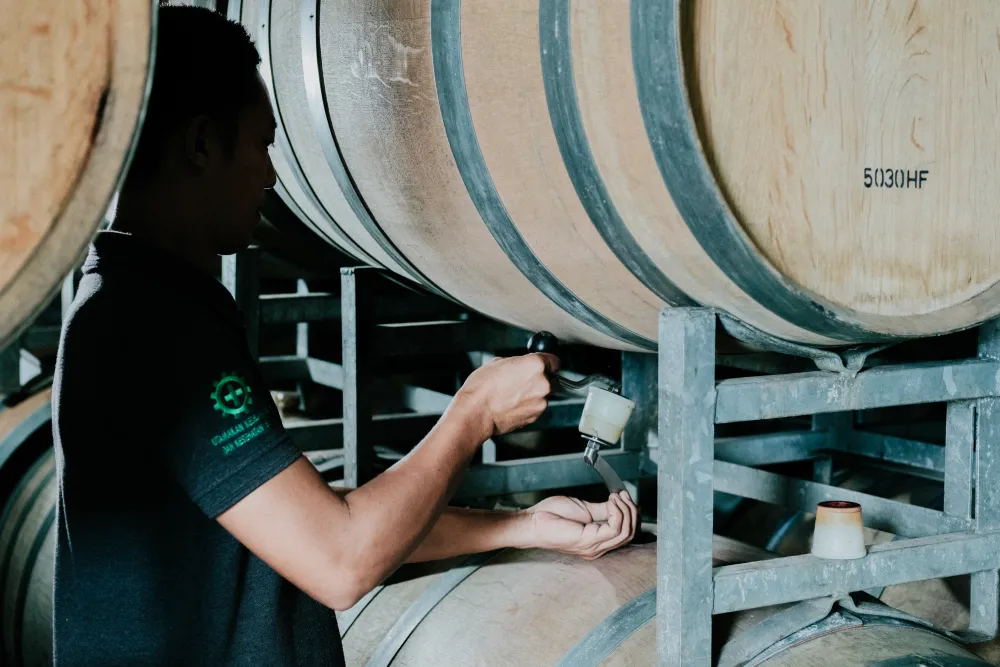
They installed weather stations to measure rainfall and temperature data, analysed mountain springs and soils. They trialled root stocks, viticulture growing styles, irrigation systems and vine pruning frequency. The technical aspect is only half the work, a lot of effort goes into training and developing the farmers, 50% of whom are from local cooperatives.
A lot of ingrained practices had to be changed: transitioning from a ‘pergola’ (horizontal canopy) to VSP trellis system (vertical fences), and rice-harvest flood irrigation to controlled water. “What we’re doing is bringing Bali’s viniculture into the 21st century,” says James.
Finally, in 2018, after four years of trials, the vineyards made history and harvested Syrah grapes. Following that, the Chenin Blanc and Colombard white varieties joined the mix. Since 2020 these grapes, along with the Muscat Blue and Malvasia Nera, are now blended into the Hatten Wines range, making them more familiar for the international palate, yet still with a distinct ‘Bali’ terroir.


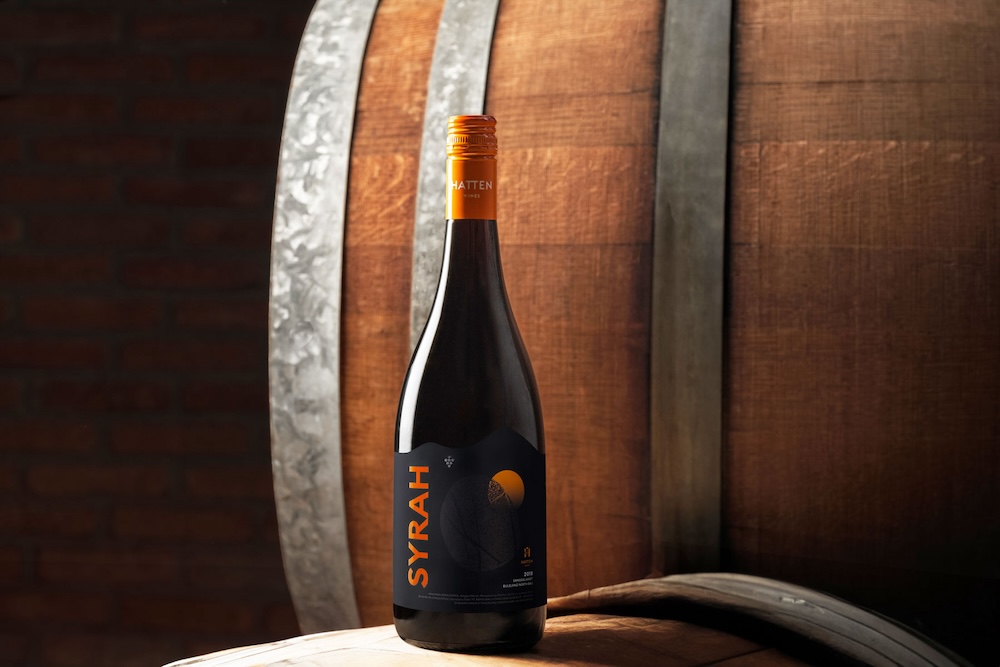
The most premium selection includes the single-varietal Chenin Blanc and Syrah releases, showcasing the pure character of these Bali-grown international grapes. The Chenin Blanc has already received accolades, including a Gold Medal at the International Wine and Spirit Competition (IWSC) 2023.
“It’s simply much harder to produce wine in Bali, and we really have to value that effort,” says James, who previously worked in wineries in Margaret River, Yecla (Spain), Sancerre, and Champagne. “There needs to be a community of development to raise the quality of grape. It’s good for the whole business. The more people that know Balinese wine, the better for everyone,” closes the winemaker.
Of course, as with any wine, it is best to try for oneself. Hatten Wines is sold in all good supermarkets and retailers across Bali. We recommend visiting ‘The Cellardoor’ in Sanur, where their staff can take you through their range. Visits to the Hatten Wine vineyards in North Bali are also available.
Jl. Bypass Ngurah Rai No. 393, Sanur
@hattenwines
hattenwines.com

